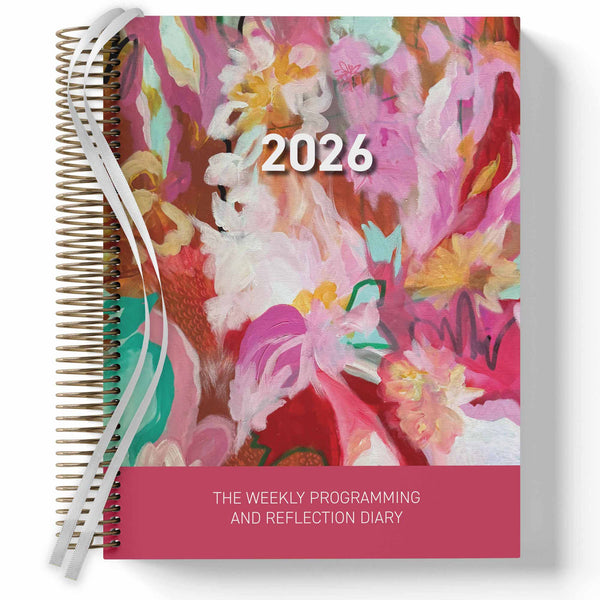Butler Buzz
-
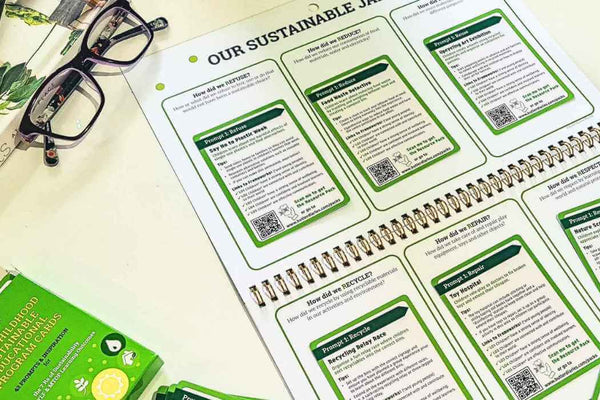
Embracing the 7 Rs of Sustainability in Early Childhood Settings
Sustainability in early childhood education isn't just about recycling—it's about nurturing a mindset that supports care for our environment, community, and future generations. The 7 Rs of Sustainability—Respect, Reduce, Reuse, Recycle, Repair, Refuse, Reflect—offer a holistic and empowering approach to embed sustainable practices in daily routines, fostering environmentally responsible citizens from the earliest years.
-

A Guide to Learning Trajectories in Early Childhood Education
Learning trajectories are a research-based framework that outlines the progression of children’s development across key learning areas. They describe how children typically learn and grow in different domains and provide educators with a roadmap to support each child’s journey... check out how they can help you.
-
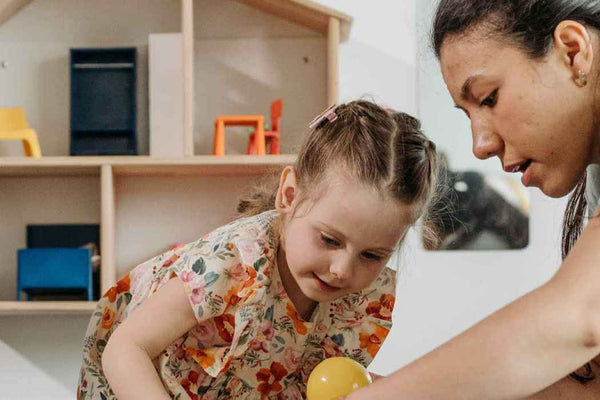
Does the Whole Service Need to Use the Same Programming Method?
"Does our entire service need to use the same programming method?" The short answer is no—but consistency, collaboration, and alignment with the Early Years Learning Framework (EYLF) v2.0 are key factors to consider.
-

Understanding the EYLF Practices in Early Childhood Education and Care
EYLF outlines the EYLF Practices that guide educators in their decision-making. Understanding these practices ensures that educators create meaningful, engaging, and inclusive learning environments that foster children's holistic growth.
-

Understanding the EYLF Principles in Early Childhood Education and Care
EYLF is the foundation of early childhood education in Australia. Central to this framework are the EYLF Principles, which provide a strong foundation for high-quality education and care. Understanding these principles is essential for educators to create meaningful learning experiences that support children's holistic development.
-

Moving Beyond 'Good Boy' or 'Good Girl': Rethinking Praise in Education
As educators, we are often reminded of the profound impact our words can have on children’s self-perception and motivation. Research and experience suggest that it’s time to rethink how we use praise to support children’s development effectively.
-

How to Do Programming in Childcare: A Comprehensive Summary Using EYLF v.2
Programming in ECEC involves creating and implementing a curriculum that supports children’s learning and development. It's essential to align your programming practices with the new standards to ensure high-quality education and care. Here's a breakdown to support you.
-

Empowering Children's Voices: The 'Children's Voices Diary' from Butler Diaries
In Early Childhood Education and Care (ECEC), fostering children's agency is a fundamental principle of the Early Years Learning Framework (EYLF) and My Time, Our Place Framework (MTOP). Encouraging children to express their thoughts, feelings, and reflections not only builds their confidence but also strengthens their sense of belonging and identity. The Children’s Voices Diary from Butler Diaries has been designed with this in mind, providing an engaging and structured way for children to document their experiences, thoughts, and aspirations. See how this Diary can foster children's development, learning, and overall wellbeing, as well as support your program.
-
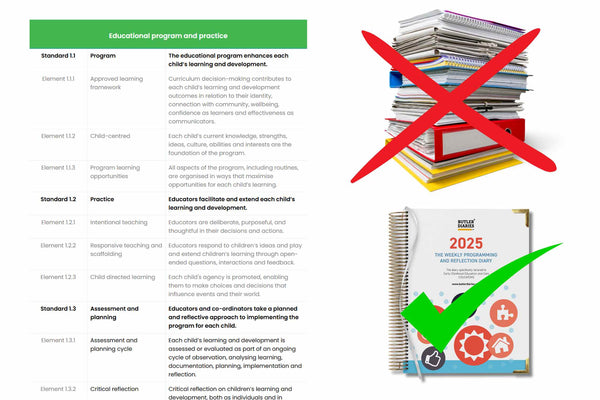
Streamlining and Reducing Duplication in Documentation
Documentation plays a crucial role in Early Childhood Education and Care (ECEC), enabling educators to track and reflect on children's learning. However, misconceptions about documentation requirements under the National Quality Framework (NQF) can result in unnecessary administrative burdens and educator burnout. Understanding regulatory obligations and adopting efficient documentation practices can help streamline processes and reduce duplication while still meeting compliance requirements.
-
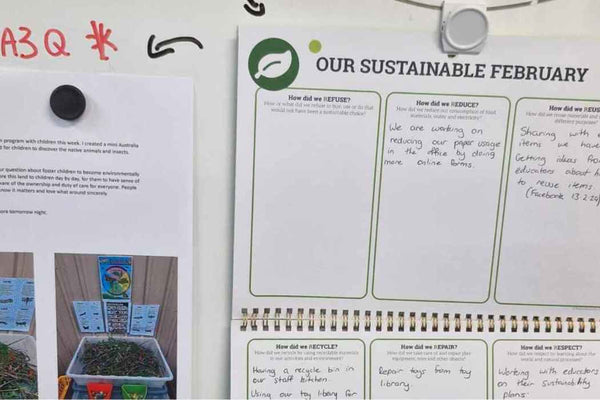
The Three Dimensions of the Sustainability Principle: Embedding and Documenting in the Early Years
EYLF V2 introduces 'Sustainability' as a core principle, encompassing environmental, social, and economic dimensions. Here we break down the Sustainability principle and how to document it.
-

How Can I Incorporate Cultural Responsiveness into My Programming?
Incorporating cultural responsiveness into your programming is essential for fostering an inclusive, respectful, and supportive environment in ECEC. By embedding cultural responsiveness, educators not only reflect the diversity of the children, families, and community but also meet the principles of the EYLF. Here’s a practical guide to embedding cultural responsiveness into your daily practices and programming.
-
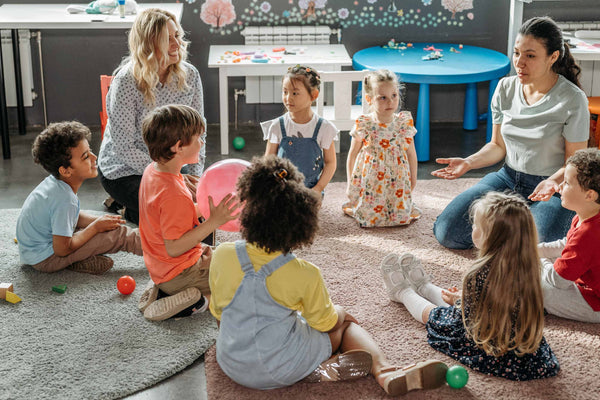
How Do I Ensure My Service Complies with Educator-to-Child Ratios?
Complying with educator-to-child ratios is a fundamental requirement for Early Childhood Education and Care (ECEC) services in Australia. These ratios ensure that children receive the attention and care they need for their safety, development, and learning. Maintaining compliance also reflects positively during Assessment and Ratings. Here’s a step-by-step guide to help your service stay on track.
-
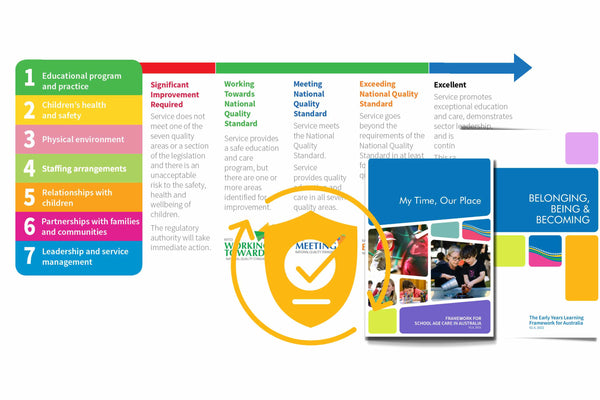
What is the National Quality Framework (NQF), and How Does it Impact My Role as an Educator?
This blog explores the core components of the NQF and its impact on your role as an educator, helping you navigate its requirements while ensuring you contribute to meaningful outcomes for children.
-
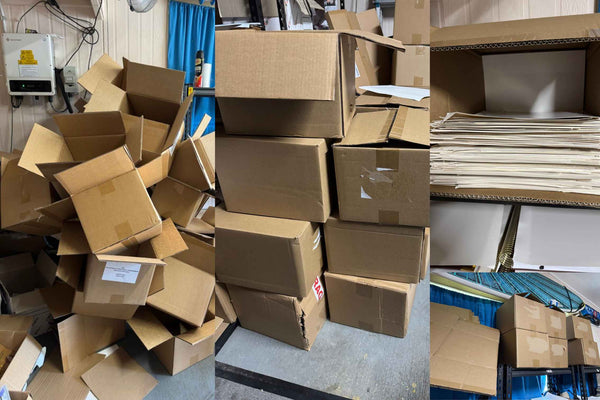
Creative Cardboard Box Activities for ECEC: Engaging Ideas Linked to EYLF Outcomes
At Butler Diaries, we reuse all our packaging we receive our Diaries in from our suppliers to send out our orders to you. So if you use them in your service, these boxes are being reused 3 times at least! Cardboard boxes are versatile and cost-effective resources that can ignite creativity and learning in Early Childhood Education and Care (ECEC). So save your Butler Diaries box from your order and try out one of the below activity ideas that utilise cardboard boxes (linked to the Early Years Learning Framework (EYLF) outcomes of course). -

Understanding the Stages of Social and Emotional Development in Children: A Guide for Early Childhood Educators
Social and emotional development forms the foundation for how children understand themselves, interact with others, and navigate their emotions. In this post, we’ll explore the key stages of social and emotional development, link them to the Early Years Learning Framework (EYLF) and Theorists and provide tips for creating a program that supports this development, with guidance on how to effectively record your efforts. -

How Do I Create a Play-Based Learning Program?
Creating a play-based learning program is not just about facilitating play but harnessing its potential to foster holistic development. In this post, we’ll guide you through creating a play-based learning program and offer tips for recording it effectively.
-

Engaging Parents in Children’s Programs: 10 Strategies for your Service
Parent involvement is key in creating a supportive, well-rounded learning environment for children. Active engagement can enhance children’s learning experiences and foster a collaborative, supportive relationship between educators and families. It is also a core component of NQS and ALFs. Here are 10 tailored strategies for each type of Early Childhood Education and Care setting to encourage parent interest and involvement in their child’s program. -

The role of loose parts in ECEC and how it links with EYLF
Loose parts play in Early Childhood Education and Care (ECEC) offers a rich opportunity for children to engage in open-ended, creative, and exploratory play. This type of play allows children to manipulate and transform materials in a variety of ways, fostering key developmental areas. Linking loose parts play to the EYLF, it strongly supports children's learning in several key learning outcomes. Here’s how loose parts play promotes children's learning, aligned with the EYLF...
-
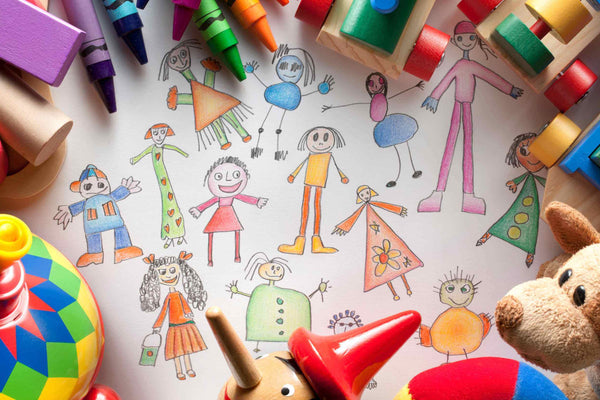
35 Community Involvement Ideas for Early Learning Services: Engaging Without Leaving the Service
Community involvement is a key part of fostering a strong sense of belonging and identity in Early Childhood Education and Care (ECEC). While excursions and off-site visits are great, there are many ways to connect with your local community without leaving your service. Here’s a list of creative, simple, and effective community engagement ideas that can be done right within your early learning setting. -
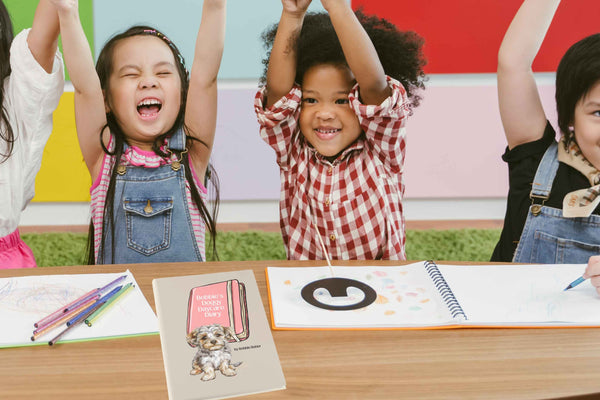
Bobbie’s Doggy Daycare Diary: Create your own Diary extension activity
Extend on the story ‘Bobbie’s Doggy Daycare Diary’ by creating your own Diaries. Children can express themselves and share their Daycare experiences in their very own Diary. Children will foster early language and literacy skills and foster their sense of identity and emotional development. Recalling their day and experiences strengthens memory, encourages reflection and helps link learning. Folding, stapling, writing and drawing all strengthen physical skills.
-
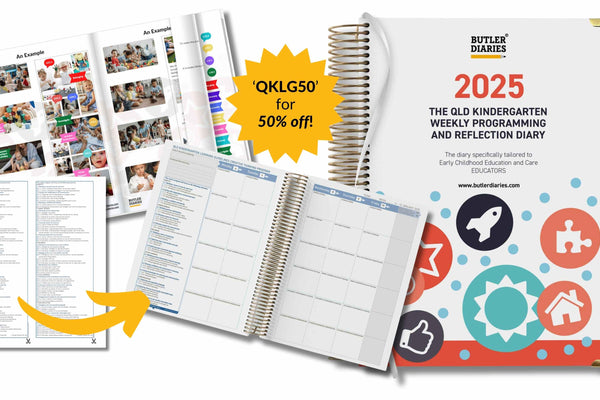
2024 Revisions to the Queensland Kindergarten Learning Guidelines (QKLG 2024): What's New?
Here we check out what's new in the QKLG 2024 to support you in your transition. The support in this article is a perfect tool to be utilised in staff meetings and reflective discussions in the lead up to 2025.
-
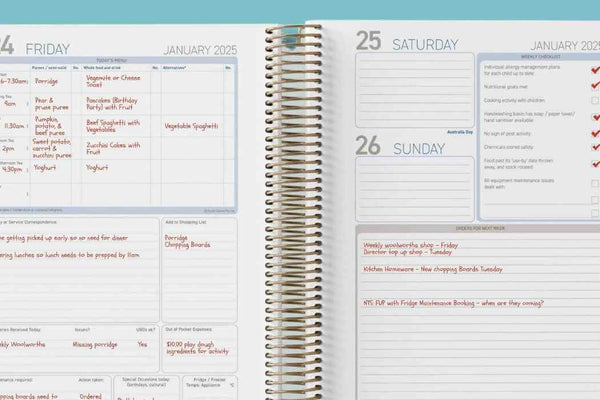
A Peek into the Early Childhood Cook Diary for ECEC with Examples
Here's we take a peek into the Early Childhood Cook Diary to see how it can help cook's and chef's in Early Childhood manage their kitchens and stay on top of compliance. -
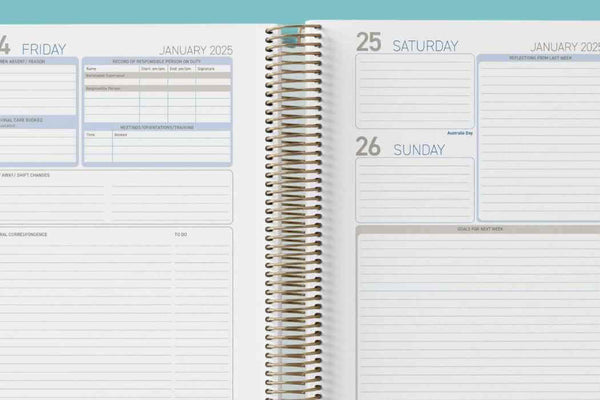
A Look into the Children's Centre Diary with Examples
Here's we take a look at the Children's Centre Diary to see how it can be used to streamline your admin and help manage your office. -
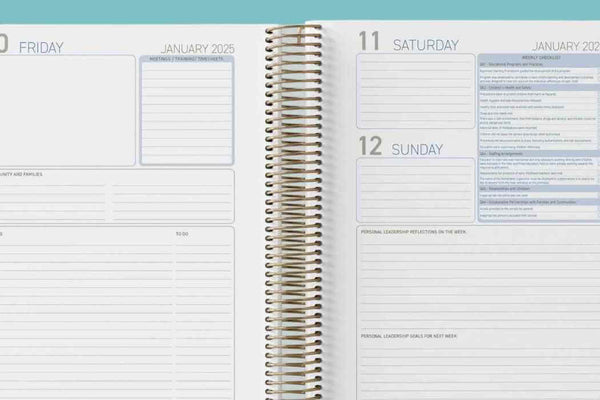
A Deep Dive into the Nominated Supervisor Diary with Examples
Here's we take a deep dive into the Nominated Supervisor Diary to see how it can be used to improve efficiency, memory and quality improvement in your service.
-

Expectations of Educational Leaders in Early Childhood Education and Care (ECEC): Free Checklist
As an Educational Leader in Early Childhood Education and Care (ECEC), it's crucial to have clear guidance to ensure you are fulfilling your role comprehensively. Your role is pivotal in shaping the educational practices and overall quality of the service. This guide provides clear directions on your expectations, responsibilities, and practical steps to effectively lead your team, ensuring the best outcomes for children in your care. Download the free checklist... -
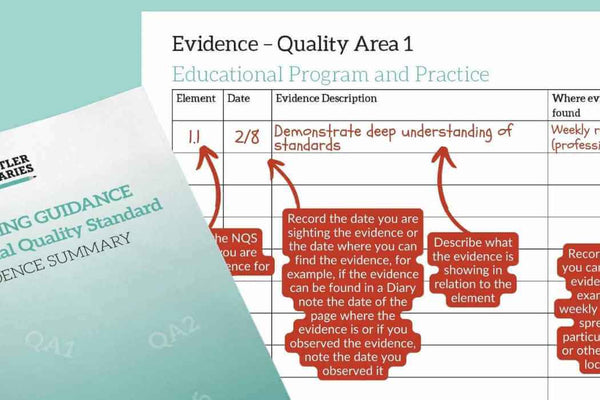
How to complete the Exceeding Guidance for National Quality Standard: Evidence Summary
The Exceeding Guidance for NQS Evidence Summary is designed to support you in succeeding at exceeding with guides to exceeding themes and evidence pages for national quality standards. Each quality area is followed by an evidence page that captures details of the evidence you've collected, where it is kept, and which element it relates to. -
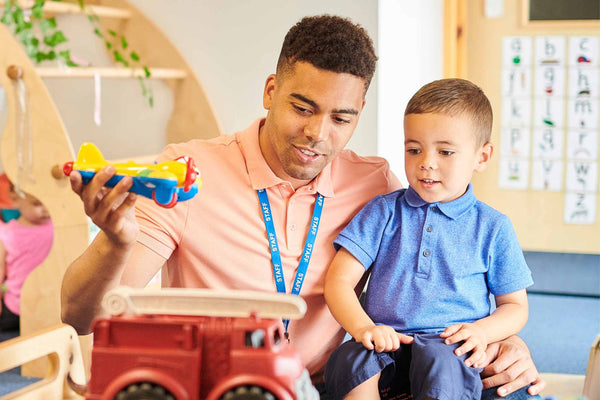
How to Become a Family Day Care Provider: A Comprehensive Guide
Becoming a family day care provider is an enriching career that allows you to create a nurturing environment where children can flourish. This detailed guide will help you understand the steps involved in starting your own family day care and provide tips for ensuring success. -
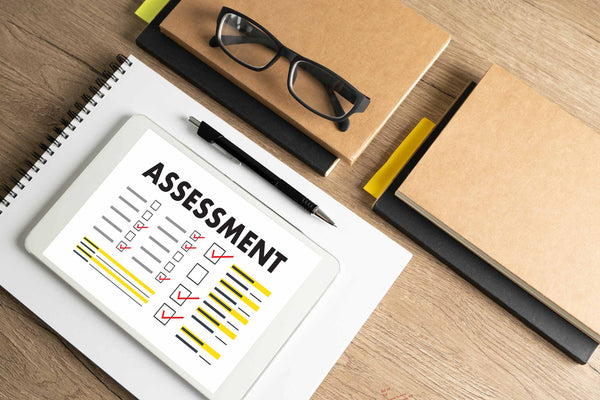
Tips for Assessment and Rating for Early Childhood Education and Care (ECEC) Services
Assessment and Rating can be a daunting process for many Early Childhood Education and Care (ECEC) services. However, with proper preparation and a clear understanding of what is expected, the experience can be significantly less stressful. Here are some essential tips to help you prepare for assessment and rating, manage nerves, and effectively discuss your practice. -
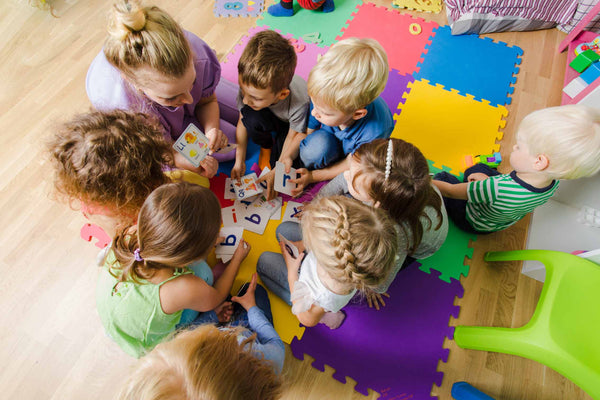
What Are the Duties of a Family Day Care Educator?
Family Day Care (FDC) educators play a crucial role in the Early Childhood Education and Care (ECEC) sector, offering a unique and personalised form of child care within a home environment. Their duties extend beyond mere supervision, encompassing a broad range of responsibilities that contribute to the development and well-being of the children in their care. Here, we explore the key duties of a Family Day Care educator. -

Top Three Responsibilities of Educational Leaders in Early Childhood Education and Care
Educational leaders play a pivotal role in shaping the quality and effectiveness of services provided. Their responsibilities are multifaceted, but three key areas stand out as essential to their role: curriculum development and implementation, professional development and support, and quality improvement and compliance. -
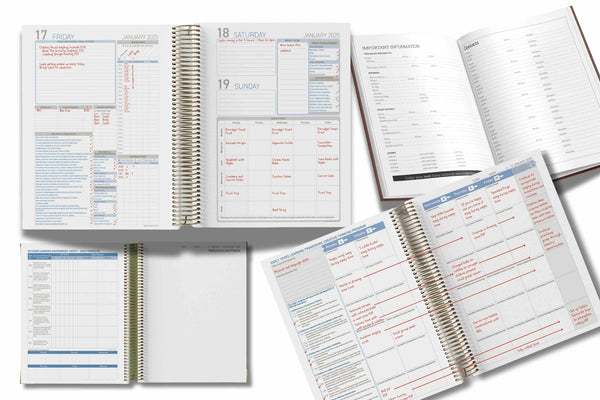
What is a Diary in Childcare and Early Childhood Education and Care?
Diaries in Childcare play an indispensable role in achieving this, serving as more than just a tool for keeping track of dates and events. They are the backbone of effective planning, assessment, and communication within educational settings. Here, we delve into the multifaceted purposes of a diary in ECEC and how it can transform your professional practice. -
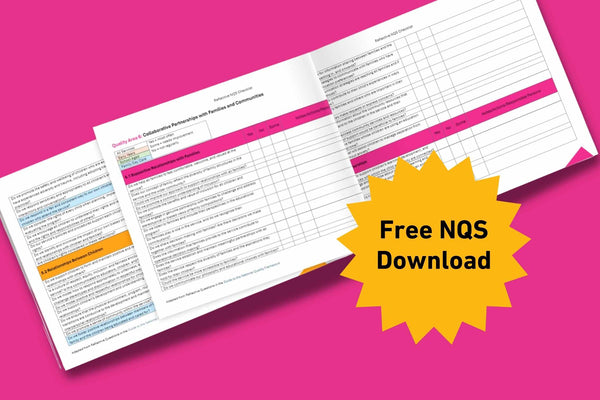
Free NQS Download: Reflective NQS Checklist
This Reflective NQS Checklist has been adapted from the Guide to the National Quality Framework to provide you an easy to follow and use template for reflecting on your practice against National Quality Standards. It's a great resource for self-assessing your service and reflecting on areas for improvement and assigning persons responsible for overseeing those improvements.
-
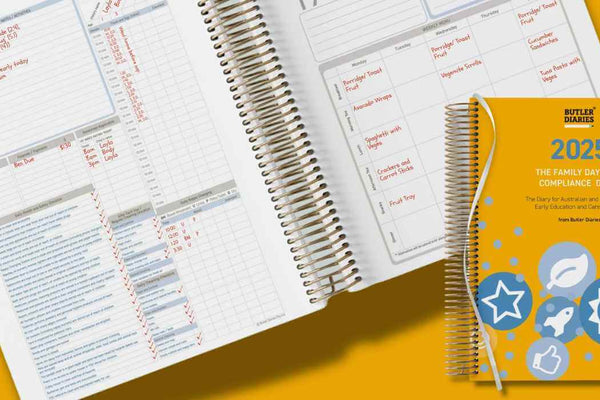
The Family Day Care Educator Diary for Family Day Care Educators
Navigating the world of compliance as a family day care educator can be daunting. At Butler Diaries, we understand these challenges and are committed to simplifying your experience with our specialised Family Day Care Educator Diary, the Family Day Care Compliance Diary.













































